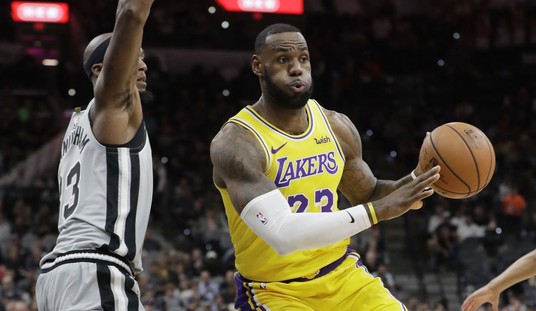Highly respected Harvard Professor Henry Louis Gates will soon have a new book out debunking the theory popular among black race-hustlers: that slavery reparations are owed to blacks.
I’ve previously been hard on the professor for playing the victim card — and the race card — after he was arrested by a white cop in Cambridge, Massachusetts. But after reading his new work, I’m willing to cut him some slack.
Gates’ book — Tradition and the Black Atlantic — was also previewed in the New York Times. The review hit like passed gas in the middle of a hot Sunday Baptist church service to those who have made careers out of racial complaints.
Gates says that everybody is familiar with the role played in slavery by the United States and the colonial powers of Britain, France, Holland, Portugal, and Spain. But he adds that there has been “little discussion of the role Africans themselves played.”
Can the church say amen?
Gates argues that the role Africans played was “considerable” and included the very kingdoms in western and central Africa that are praised as examples of Africa’s historical greatness every February during “Black History Month” celebrations.
How did this African involvement in the slave trade work?
Gates references the historians John Thornton and Linda Heywood of Boston University — who estimate that 90 percent of the slaves shipped to the New World were captured and enslaved by Africans before being sold to European traders and commercial agents.
In essence, the slave trade would have been impossible on the scale it occurred without African business partners.
Scolding advocates for reparations — like Congressman John Conyers and Randall Robinson — ignore these inconvenient truths. But as my friend Larry Elder likes to say:
Facts to a liberal is like Kryptonite to Superman.
But facts are persistent things, and Gates points out that the belief that Europeans alone are responsible is a fantasy. This view is a romanticized version promoting the notion that Africans were somehow just “kidnapped” by evil white men — the version promoted in the old television series Roots. The truth is, however, that slavery was a highly lucrative business for European traders and African sellers alike.
Though it may be new to reparation advocates, none of this information is new to anyone who’s honestly examined slavery.
Well before the Civil War, the former slave Frederick Douglass said:
The savage chiefs of the western coasts of Africa, who for ages have been accustomed to selling their captives into bondage and pocketing the ready cash for them, will not more readily accept our moral and economical ideas than the slave traders of Maryland and Virginia.
Africans have been aware of their countries’ role in this evil trade. In 1999, the president of Benin shocked an all-black congregation in Baltimore when he fell to his knees and begged their forgiveness for the “shameful” and “abominable” role that Africans played in slavery.
Just how invested were the African kingdoms in the slave trade?
When British abolitionists were finally able to suppress the slave trade in 1808, rioters protested in the streets of cities in what is now Ghana, and the king of Nigeria said to the British:
Your country, however great, can never stop a trade ordained by God himself.
This old chief has been proven partially correct. Slavery continues to exist in African nations today, most notably in Sudan, Ghana, Mauritania, Benin, Gabon, Mali, and the Ivory Coast, where tens and perhaps hundreds of thousands of people are enslaved.
Professor Gates has shown a great deal of intellectual honesty by dropping a hand grenade in the midst of the greatest hustle of “victim studies” — the notion that whites alone were responsible for slavery.
The arguments surrounding the demands for reparations have been full of overstatement, melodrama, distortion, and absurd theory. Since the 1960s, militant figures like H. Rap Brown, Stokely Carmichael, James Baldwin, and Malcolm X have engaged in saber-rattling that, all too often, was able to spawn sappy, weepy white guilt.
The result was a cottage industry specializing in racial victimization. The centers for this industry are to be found at major American college and university campuses, where “black studies” departments perpetuate beliefs in all sorts of racial nonsense — including the demand for slavery reparations.
There needs to be more truth-telling of the kind found in Gates’ book. For too long, black academics and guilty white allies have been perpetuating fraud.
As the arguments about Africa’s involvement in the slave trade — made by conservatives like me — have been discounted by the race-hustlers, perhaps Gates’ involvement in this debate might finally open the door for reality to be heard. Gates makes it clear that the international slave trade existed in a complex world — it wasn’t simply a cartoon about good guys and bad guys.
In 1971, the brilliant Albert Murray wrote South to a Very Old Place. Within, he writes of a conversation between himself and Robert Penn Warren. Warren tells Murray that slavery was a terrible human business and every element of it was defined by the intricate human shortcomings or virtues of those involved on either side of the issue.
Yeah, I know. Here’s hoping that kind of thought doesn’t prove too deep for the everyday race hustler to comprehend.









Join the conversation as a VIP Member